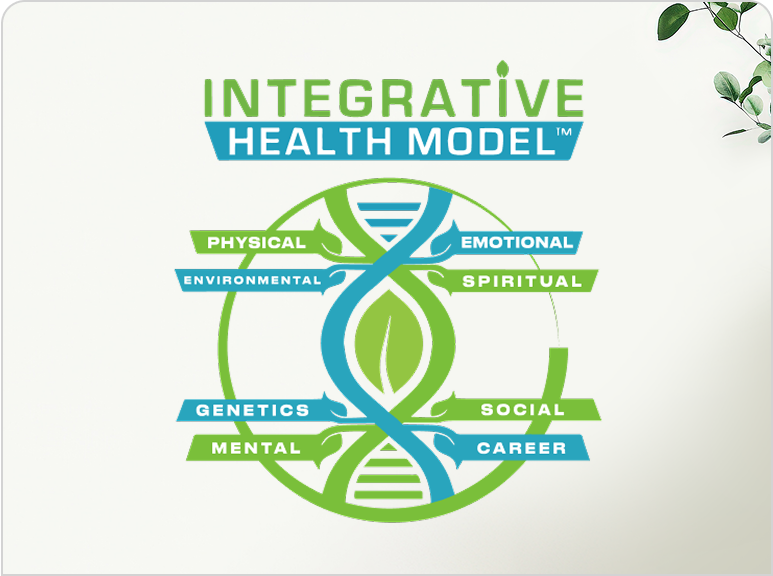Symptoms of Cellular Dehydration

3 Min



%201.png)
%201.png)
%201.png)





Holistic naturopathic pioneer with 20+ years’ experience. Founded Integrative Health Model™ and FDA‑compliant nutrient clinic, specializing in root‑cause healing.





Holistic naturopathic pioneer with 20+ years’ experience. Founded Integrative Health Model™ and FDA‑compliant nutrient clinic, specializing in root‑cause healing.




.png)
Dedicated to root-cause healing through personalized, naturopathic care that supports the mind, body, and spirit as one system.





Holistic health model showing interconnected body systems, personalized healing phases, and unique “ME ID™ Body Code” for optimal vitality.




.png)
Holistic naturopathic physician addressing root causes with extensive training, personalized care, and integrative therapies.











%201.png)
%201.png)
%201.png)





%201.png)
%201.png)
%201.png)





%201.png)
%201.png)
%201.png)





%201.png)
%201.png)
%201.png)





%201.png)
%201.png)
%201.png)







We identify root causes and use personalized nutrition, testing, and natural therapies to restore healthy digestion and gut balance.




.png)
We uncover stress, anxiety, depression causes and support holistic mind-body healing through naturopathic therapies.




.png)
We uncover hormonal, nutritional, and metabolic imbalances to support sustainable, root-cause-driven weight loss strategies.




.png)
We identify emotional stress triggers and restore balance using root-cause naturopathic and lifestyle medicine.




.png)
We identify hidden causes like nutrient deficiencies, thyroid issues, toxins, and more to restore lasting energy and vitality.




.png)
We address chronic and acute pain causes through multimodal, holistic therapies and mind–body support.




.png)
We support graceful aging with personalized therapies that enhance cellular repair, brain health, and hormone balance.




.png)
We assess full thyroid function and rebalance hormones using personalized, integrative testing and care.




.png)
We address immune triggers and sensitivities through advanced testing, detox, and natural therapies to reduce allergy symptoms.





We improve sleep with hygiene strategies, stress reduction, and personalized naturopathic guidance.




.png)
We focus on gut health, inflammation, and immune balance to reduce flare-ups and support long-term healing.




.png)
We identify and correct hormonal imbalances through advanced testing, lifestyle changes, and natural therapies to restore energy, mood, and vitality.




.png)
We create personalized plans targeting blood sugar balance, insulin resistance, and lifestyle habits for better metabolic health.






.png)
Our patients found answers, lasting relief, and genuine care after years of frustration and feeling overlooked.




.png)
Dr. Cutler featured on national media for his expertise in root-cause healing & integrative, personalized care.






.png)
Access your health records, test results, and send secure messages to our team in one private online portal.




.png)
Affordable care made easy with flexible monthly payment options through CareCredit so you can focus on your health.




.png)
Get expert tips, wellness education, & insights on root-cause healing from Dr. Cutler & the integrative care team.




.png)
Get expert tips, wellness education, & insights on root-cause healing from Dr. Cutler & the integrative care team.






BioCharger
%201.png)
Environmental Medicine in our Bingham Farms, Michigan office focuses on understanding how environmental factors influence our health and behavior. Through multiple depurations (cleansing), detoxification, and chelation therapy protocols, we prevent biological, chemical, and toxicant exposures, lowering the total toxic burden on the body.
%201.png)
Integrative Medicine in our Bingham Farms, Michigan office is the blending of the best from conventional medicine using all appropriate therapeutic approaches and evidence-based global medical modalities to achieve optimal health and healing. At Cutler Integrative Medicine, we select the very best scientifically validated therapies from conventional and alternative/natural systems to address the whole person, encompassing the physical, emotional, social, environmental, mental, and spiritual aspects of health and illness.
%201.png)
Environmental Medicine in our Bingham Farms, Michigan office focuses on understanding how environmental factors influence our health and behavior. Through multiple depurations (cleansing), detoxification, and chelation therapy protocols, we prevent biological, chemical, and toxicant exposures, lowering the total toxic burden on the body.
%201.png)
Integrative Medicine in our Bingham Farms, Michigan office is the blending of the best from conventional medicine using all appropriate therapeutic approaches and evidence-based global medical modalities to achieve optimal health and healing. At Cutler Integrative Medicine, we select the very best scientifically validated therapies from conventional and alternative/natural systems to address the whole person, encompassing the physical, emotional, social, environmental, mental, and spiritual aspects of health and illness.
%201.png)
Environmental Medicine in our Bingham Farms, Michigan office focuses on understanding how environmental factors influence our health and behavior. Through multiple depurations (cleansing), detoxification, and chelation therapy protocols, we prevent biological, chemical, and toxicant exposures, lowering the total toxic burden on the body.
%201.png)
Integrative Medicine in our Bingham Farms, Michigan office is the blending of the best from conventional medicine using all appropriate therapeutic approaches and evidence-based global medical modalities to achieve optimal health and healing. At Cutler Integrative Medicine, we select the very best scientifically validated therapies from conventional and alternative/natural systems to address the whole person, encompassing the physical, emotional, social, environmental, mental, and spiritual aspects of health and illness.
%201.png)
Environmental Medicine in our Bingham Farms, Michigan office focuses on understanding how environmental factors influence our health and behavior. Through multiple depurations (cleansing), detoxification, and chelation therapy protocols, we prevent biological, chemical, and toxicant exposures, lowering the total toxic burden on the body.
%201.png)
Integrative Medicine in our Bingham Farms, Michigan office is the blending of the best from conventional medicine using all appropriate therapeutic approaches and evidence-based global medical modalities to achieve optimal health and healing. At Cutler Integrative Medicine, we select the very best scientifically validated therapies from conventional and alternative/natural systems to address the whole person, encompassing the physical, emotional, social, environmental, mental, and spiritual aspects of health and illness.
%201.png)
Environmental Medicine in our Bingham Farms, Michigan office focuses on understanding how environmental factors influence our health and behavior. Through multiple depurations (cleansing), detoxification, and chelation therapy protocols, we prevent biological, chemical, and toxicant exposures, lowering the total toxic burden on the body.
%201.png)
Integrative Medicine in our Bingham Farms, Michigan office is the blending of the best from conventional medicine using all appropriate therapeutic approaches and evidence-based global medical modalities to achieve optimal health and healing. At Cutler Integrative Medicine, we select the very best scientifically validated therapies from conventional and alternative/natural systems to address the whole person, encompassing the physical, emotional, social, environmental, mental, and spiritual aspects of health and illness.
%201.png)
Environmental Medicine in our Bingham Farms, Michigan office focuses on understanding how environmental factors influence our health and behavior. Through multiple depurations (cleansing), detoxification, and chelation therapy protocols, we prevent biological, chemical, and toxicant exposures, lowering the total toxic burden on the body.
%201.png)
Integrative Medicine in our Bingham Farms, Michigan office is the blending of the best from conventional medicine using all appropriate therapeutic approaches and evidence-based global medical modalities to achieve optimal health and healing. At Cutler Integrative Medicine, we select the very best scientifically validated therapies from conventional and alternative/natural systems to address the whole person, encompassing the physical, emotional, social, environmental, mental, and spiritual aspects of health and illness.
%201.png)
Environmental Medicine in our Bingham Farms, Michigan office focuses on understanding how environmental factors influence our health and behavior. Through multiple depurations (cleansing), detoxification, and chelation therapy protocols, we prevent biological, chemical, and toxicant exposures, lowering the total toxic burden on the body.
%201.png)
Integrative Medicine in our Bingham Farms, Michigan office is the blending of the best from conventional medicine using all appropriate therapeutic approaches and evidence-based global medical modalities to achieve optimal health and healing. At Cutler Integrative Medicine, we select the very best scientifically validated therapies from conventional and alternative/natural systems to address the whole person, encompassing the physical, emotional, social, environmental, mental, and spiritual aspects of health and illness.
Led by Doug Cutler, N.D.
A national expert in Naturopathic Medicine, Dr. Doug Cutler, ND, founded the Integrative Health Model™. He uses a holistic approach with naturopathic medicine to create breakthroughs in his patients’ health. His ability to empower patients to better health after they have exhausted conventional methods has patients on a waitlist to see him.
Dr. Cutler launched his new ClubIV™ over 80 nutrient formulas, one of the only FDA/USP-compliant IV/IM (intravenous/ intramuscular) nutrient therapy clinics in Michigan. The advanced nutrient formulas are customized to increase energy, improve sleep, optimize immune function, recover cellular homeostasis, promote healing and recovery, reduce stress and anxiety, support weight loss, and much more.


“Dr Cutler is simply wonderful. He has done more for my overall health than any doctor I've ever seen. He not only gives you a plan to help you to better health, he educates you so you recognize the start of issues so you can address them before they become bigger problems. I've never felt so healthy!”
- April C.
The information and services offered go hand and hand with my family goals. Dr Cutler listens and because he is all about preventing vs just medicating it lets us know we went to the right place.
- Gail M.
Dr. Cutler has done an amazing job at helping me with a medical condition and helping me to find relief. He is very personable and open minded, give him a visit for sure!
- Maggie H.

No appointments needed after your initial consultation. Feel better, faster on your schedule.





(248) 663-0165
.png)
31350 Telegraph Rd, Suite 102,
Bingham Farms, MI 48025
.png)
Serving Birmingham, West Bloomfield, Troy, Oakland County, and The greater Detroit area.
.png)
Cutler Integrative Medicine blends naturopathic and conventional care to treat the root causes of illness. Through personalized wellness plans, advanced diagnostics, and holistic therapies,
Website Designed by: MODRN.ioCopyright © 2025 Cutler Integrative Medicine. All Rights Reserved.
.png)
Serving Birmingham, West Bloomfield, Troy, Oakland County, and The greater Detroit area.
Accessibility: If you are vision-impaired or have some other impairment covered by the Americans with Disabilities Act or a similar law, and you wish to discuss potential accommodations related to using this website, please contact our Accessibility Manager at (248) 663-0165